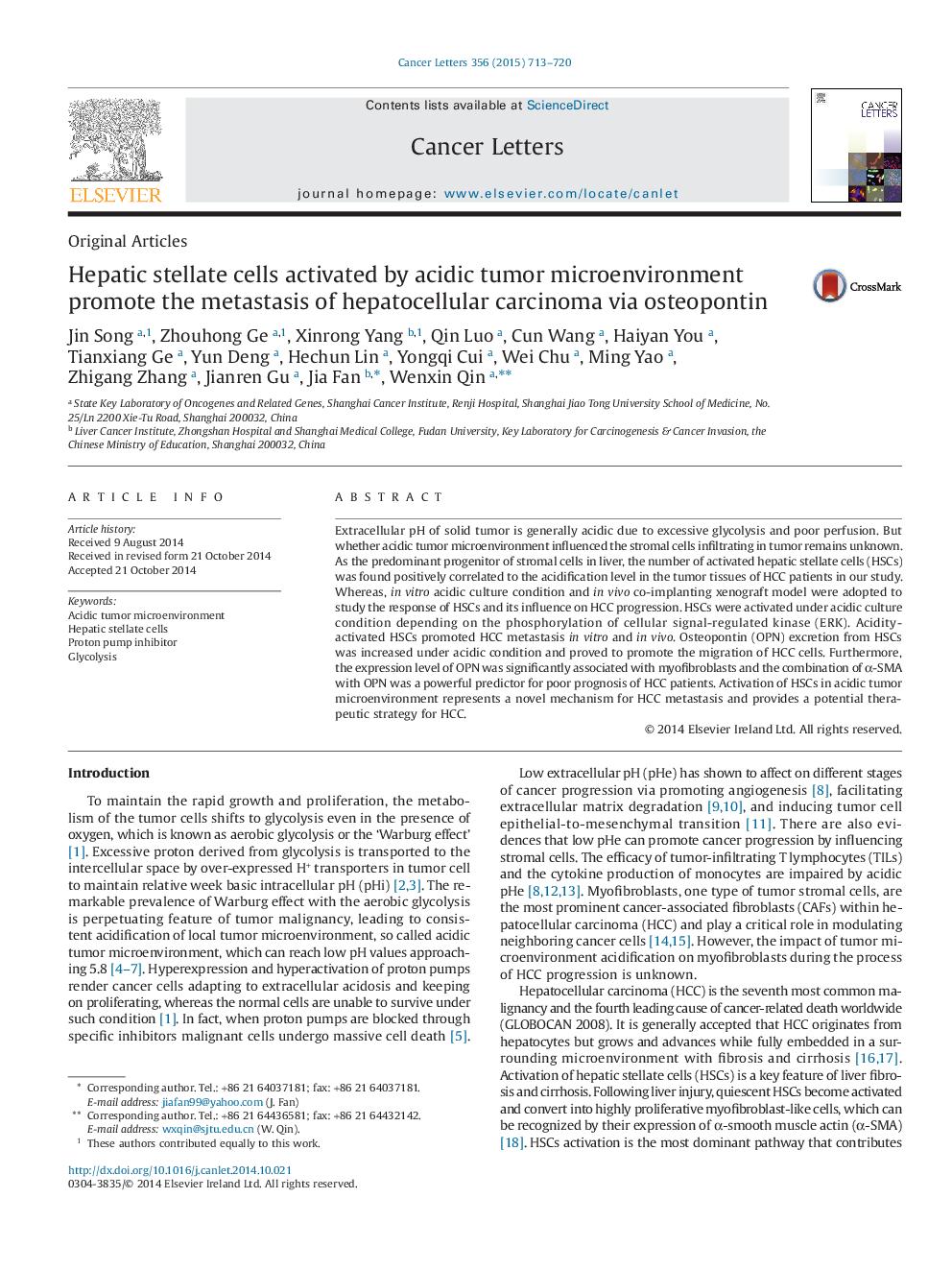| Article ID | Journal | Published Year | Pages | File Type |
|---|---|---|---|---|
| 10899709 | Cancer Letters | 2015 | 8 Pages |
Abstract
Extracellular pH of solid tumor is generally acidic due to excessive glycolysis and poor perfusion. But whether acidic tumor microenvironment influenced the stromal cells infiltrating in tumor remains unknown. As the predominant progenitor of stromal cells in liver, the number of activated hepatic stellate cells (HSCs) was found positively correlated to the acidification level in the tumor tissues of HCC patients in our study. Whereas, in vitro acidic culture condition and in vivo co-implanting xenograft model were adopted to study the response of HSCs and its influence on HCC progression. HSCs were activated under acidic culture condition depending on the phosphorylation of cellular signal-regulated kinase (ERK). Acidity-activated HSCs promoted HCC metastasis in vitro and in vivo. Osteopontin (OPN) excretion from HSCs was increased under acidic condition and proved to promote the migration of HCC cells. Furthermore, the expression level of OPN was significantly associated with myofibroblasts and the combination of α-SMA with OPN was a powerful predictor for poor prognosis of HCC patients. Activation of HSCs in acidic tumor microenvironment represents a novel mechanism for HCC metastasis and provides a potential therapeutic strategy for HCC.
Related Topics
Life Sciences
Biochemistry, Genetics and Molecular Biology
Cancer Research
Authors
Jin Song, Zhouhong Ge, Xinrong Yang, Qin Luo, Cun Wang, Haiyan You, Tianxiang Ge, Yun Deng, Hechun Lin, Yongqi Cui, Wei Chu, Ming Yao, Zhigang Zhang, Jianren Gu, Jia Fan, Wenxin Qin,
